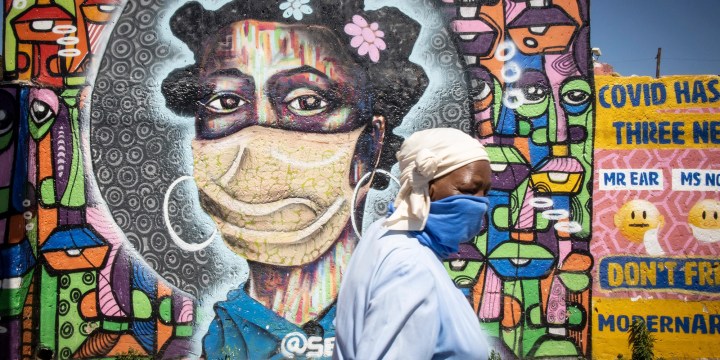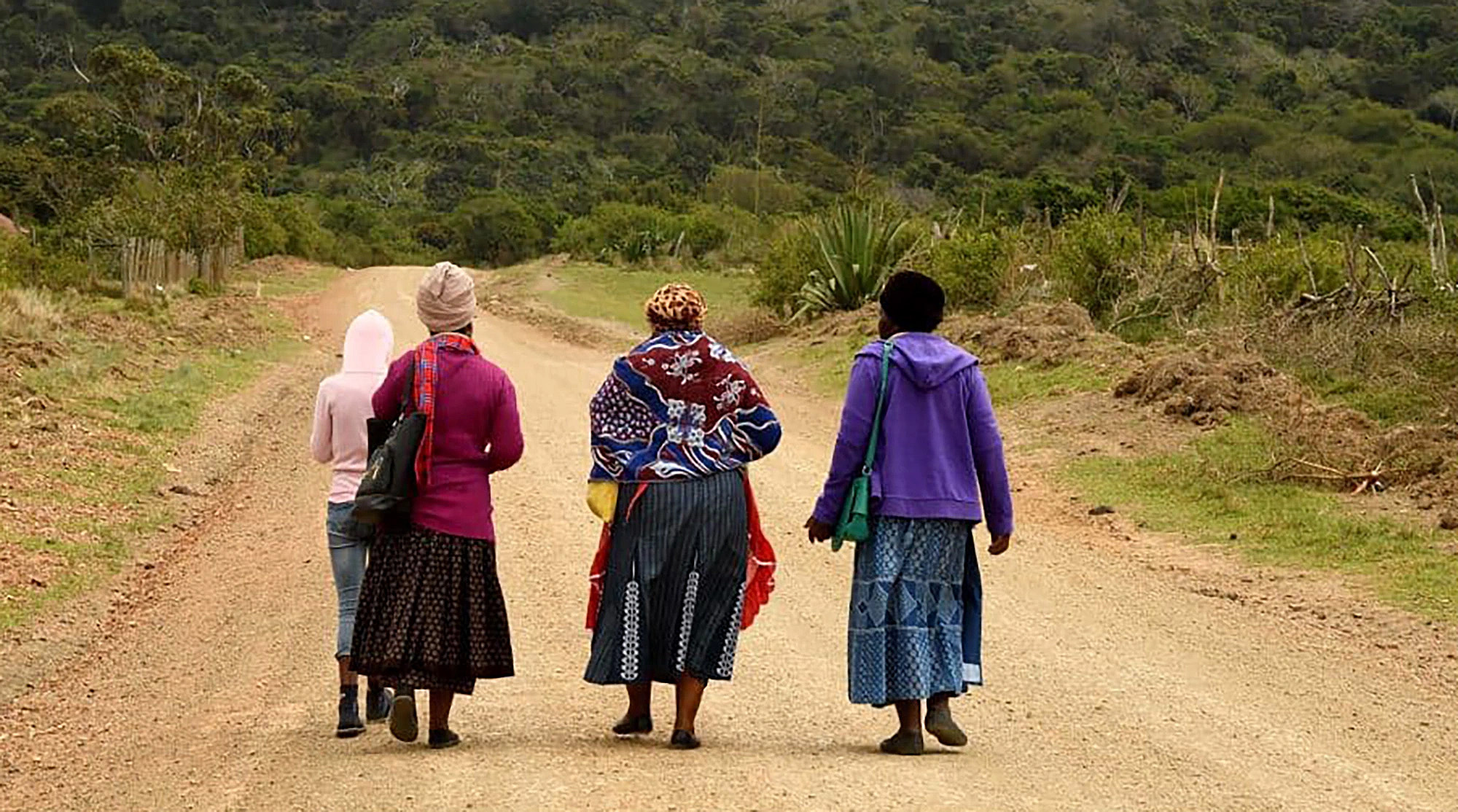INEQUALITY OP-ED
Vaccines and social grants are potentially changing the economic and political face of rural SA

Among other things, rural vaccination programmes and social grant provision incentivise homecoming for young people who are unable to find employment in the cities and potentially build a new basis for youth politics in rural areas.
In the early 1990s, James Ferguson published a path-breaking book in the field of development studies titled The Anti-Politics Machine. The book argued that the enterprise of global development, as it related to the global South, often had the effect of taking the “politics out of poverty” by masking relations of inequality and entrenching state power.
He illustrated his argument with reference to World Bank rural development projects in Lesotho that had failed but were continuously funded during the 1970s and 1980s.
Ferguson argued that development was like the prison system, which remained in place despite failing to reform criminals. He asserted that the reasons for the continued financial support of the Lesotho projects had less to do with their success than with the way the “development apparatus” – funded with donor capital – depoliticised rural poverty and state power.
In some ways, the global vaccination drive by the World Health Organization might be conceived in a similar way. To be sure, the promise of protection from Covid-19 deaths through Western biomedical vaccines has proved considerably more successful, for example, than the failed commercial farming projects of the World Bank in rural Lesotho. But the effects or what Ferguson called the “unintended consequences” of the campaign have been remarkably similar.
Fuel thieves siphon off millions from Mpumalanga Eskom power station
Globally, Covid-19 death rates are three or five times higher in poor communities than in middle-class ones. Inequalities in wealth and access to medical services have also had a profound effect on both the spread of the disease and the distribution of death tolls from the virus. It is not surprising then that there is generally greater hesitancy and resistance to vaccination in poor communities than in wealthier ones, partly because of the low levels of trust in government services and their top-down management of the pandemic.
But, with the support of external funding, innovative government outreach programmes and their community engagement strategies have pushed back resistance. In the rural Eastern Cape in South Africa, for example, which was devastated by the pandemic, one recent survey showed that, while more than 60% of rural adults were hesitant to vaccinate, a massive and generously funded rural outreach campaign had pushed vaccination rates up to as high as 65% in some rural areas – 25% above the original threshold of acceptance.
The huge investment in rural vaccination also led to increasing levels of satisfaction with government health services, which had all but collapsed in parts of the Eastern Cape during the first two waves of contagion.

In the early phases of the vaccine campaign in South Africa and the rural Eastern Cape, which had the highest recorded death rate from the virus on the continent, fear of death drove vaccine up-take, especially among older people. (Photo:Black Star/Spotlight)
The “anti-politics machine” of development, as Ferguson labelled it, was gaining momentum as local bureaucrats, elites and traditional leaders, who had deserted and ignored the rural poor when they were dying in large numbers, now garnered favour and credibility through their association with special government grants, donor programmes, a solidarity fund established by the government with private sector support and private donations. This new money bought vaccines, nurses, pop-up clinics, free T-shirts and shopping vouchers, and paid the wages of local community advocates and activists.
The rural vaccination machine driven by Premier Oscar Mabuyane and his team in the Eastern Cape, like the World Bank development projects in Lesotho, generated a kind of false hope among the hopeless, who now had more chance of dying from hunger than Covid-19. The renewal of Covid-19 relief grants in April 2022, for a third time since they were introduced in May 2020, has added momentum to the hopeful spirit, especially among unemployed youth who are keen to get their names on the list for welfare. In the past two years, the South African government has added 10 million new grant recipients to its monthly payroll.
The difficulty of accessing the grant in rural areas notwithstanding, the provision of social relief grants eroded the anti-politics of vaccine delivery and created a groundswell of political agitation around issues of inequality linked to Covid-19 and vaccination. At the core of this transition has been the rise of what might be called a shift to “transactional vaccination”.
In the early phases of the vaccine campaign in South Africa and the rural Eastern Cape, which had the highest recorded death rate from the virus on the continent, fear of death drove vaccine uptake, especially among older people. But when thresholds of acceptance were reached at around 40% of the population in the latter half of 2021, the provincial government increasingly promoted transactional vaccination by offering service providers, including non-governmental organisations and community-based organisations cash incentives to push up the numbers, while at the same time incentivising vaccination in other ways, such as through the distribution of gifts and shopping vouchers.
At the same time, local politicians and nurses in the public health sector emphasised vaccine compliance as the basis for securing grants and jobs. They said that there was no guarantee that people would receive basic government services, including healthcare, if they were not vaccinated. And Mabuyane emphasised that he could see no reason why every citizen in the province should not be vaccinated.
These strategies gained momentum as rates of rural uptake dropped. In effect, the earlier ethos of free will based on steady supply and public education was replaced by the politics of compliance, persuasion and coercion.
By stressing the transactional nature of the vaccine as a precondition of citizenship, defined by access to the labour market, grants and basic services, the state has inadvertently provoked a new politics, especially among the youth who fear the impact of Covid-19 least. They now claim that access to their bodies must be predicated on some measurable return, such as the provision of a grant, gift or benefit. In this context, vaccination uptake has left the domain of individual free will and the dynamics of supply and demand and entered the space of exchange.
In this politics, which the state promoted with its threats, conditionalities and cash, vaccination is no longer viewed as a matter of choice but as a tradable good, embedded in demands for reciprocity, enhanced citizenship and desired dependence.
The establishment of the new Social Relief Grant, now only available to those under 35, offers the possibility of long-term access to grant relief for the youth and unemployed, who have been marginalised in rural areas by virtue of their dependence on old-age pensioners for cash and support. The new grant regime also incentivises rural homecoming for young people who are unable to find employment in the cities and potentially builds a new basis for youth politics in rural areas.
Another interesting aspect of the new grant is that the application requires the identity numbers and details of parents and partners, which makes it necessary for the youth seeking these grants to notify their families of their application. This imposes certain obligations on them to spend their additional income on collective consumption rather than individual priorities, which may include alcohol, socialising and travel.
Could the grants promote greater rural family unity? And, if they were to grow in size, would they provide a much-needed return to family enterprise and agrarian production?
What does seem clear is that the old theories and practices of vaccination based on public education and free will might have fallen on hard times as vaccination is increasingly conceived as a form of transactional capital by the largest category of unvaccinated individuals in South Africa – the youth. DM
Prof Leslie Bank is Deputy Executive Director in the Inclusive Economic Development Unit at the HSRC in Cape Town and has been leading a project on vaccine hesitancy in the rural Eastern Cape. His new book, with Nelly Vuyokazi Sharpley, Covid and Custom in Rural South Africa, has recently been published by Hurst Publishers, London.
[hearken id=”daily-maverick/9472″]
"Information pertaining to Covid-19, vaccines, how to control the spread of the virus and potential treatments is ever-changing. Under the South African Disaster Management Act Regulation 11(5)(c) it is prohibited to publish information through any medium with the intention to deceive people on government measures to address COVID-19. We are therefore disabling the comment section on this article in order to protect both the commenting member and ourselves from potential liability. Should you have additional information that you think we should know, please email [email protected]"





 Become an Insider
Become an Insider